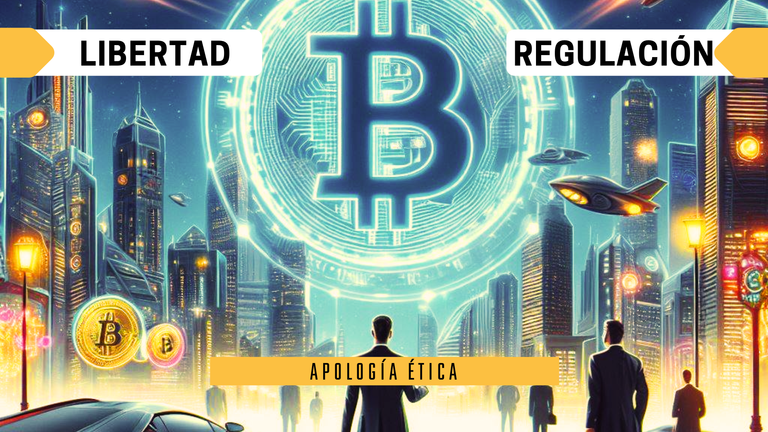

¡Feliz halving! En Bitcoin cada 210.000 bloques ocurre un evento que se denomina halving. Es un proceso automático ya incorporado en el código del protocolo desde su génesis, concebido para reducir la emisión de bitcoin por bloques a la mitad, haciendo que la minería de los 21 millones de bitcoin totales sea cada vez más lenta. Con cada halving, disminuye la emisión, se reduce la oferta y, por ende, se controla la inflación.
Este evento, que ocurre aproximadamente cada 4 años, despierta un interés descontrolado en Bitcoin, a menudo asociado más con el precio que con el valor per se que representa un activo inconfiscable y limitado. Lo cierto es que bitcoin se vuelve atractivo tanto para inversionistas como para especuladores; los primeros persiguen valor, los segundos buscan obtener ganancias rápidas comprando y vendiendo.
Sin embargo, esta euforia por conquistar el "oro digital" puede llevar a una especulación desenfrenada movida por la ambición, especialmente cuando se confirma la llegada de un Bull Market. Como tiburones a la sangre, esto atrae a la escena financiera cripto tanto a inversores experimentados como a novatos pescadores de oportunidades. Lamentablemente, en su mayoría son nuevos actores, tal vez provenientes de los mercados tradicionales, que no están conscientes de la enorme volatilidad de este mercado, que suele basarse en la confianza y es susceptible a las emociones.
ENGLISH VERSION
Happy halving! In Bitcoin, every 210,000 blocks an event occurs known as halving. It's an automatic process already incorporated into the protocol code since its inception, designed to halve the issuance of bitcoin per block, making the mining of the total 21 million bitcoins slower over time. With each halving, issuance decreases, supply is reduced, and thus, inflation is controlled.
This event, which happens approximately every 4 years, sparks uncontrolled interest in Bitcoin, often associated more with the price than with the inherent value of an asset that is confiscation-resistant and limited. The truth is that Bitcoin becomes attractive both to investors and speculators; the former pursue value, the latter seek to make quick profits by buying and selling.
However, this euphoria to conquer the "digital gold" can lead to unchecked speculation driven by ambition, especially when the arrival of a Bull Market is confirmed. Like sharks to blood, this attracts both experienced investors and novice opportunity-seekers to the crypto financial scene. Unfortunately, the majority are new actors, perhaps from traditional markets, who are unaware of the enormous volatility of this market, which usually relies on trust and is susceptible to emotions.



La especulación y la volatilidad en el mercado de las criptomonedas han generado desde sus inicios un debate controvertido. Para algunos, aquellos menos familiarizados con este sector, las criptomonedas pueden parecer estafas piramidales o esquemas Ponzi. Para otros, en especial los entes reguladores, es un mercado que por sí mismo no protege adecuadamente a los inversores y que puede incluso propiciar actividades ilícitas.
En cualquier caso, estos juicios deliberados suelen ser el resultado de un desconocimiento generalizado sobre las criptomonedas, la gestión de activos digitales, la volatilidad del mercado y la tecnología blockchain. Es irresponsable invertir en algo que no se entiende completamente, especialmente en un mercado tan impredecible, tan nuevo, tan salvaje. Suele ser una premisa no invertir más de lo que te puedes permitir perder.
Ahora bien, la misma filosofía libertaria, descentralizada e igualitaria que tanto defendemos, puede ser aprovechada y explotada a favor por actores maliciosos y estafadores. En esta industria, la educación es clave. Delegar nuestra responsabilidad de autocustodia o la toma de decisiones financieras en terceros puede poner en riesgo nuestro patrimonio.
El caso de Sam Bankman-Fried es un triste ejemplo y un recordatorio sombrío de cómo la confianza mal dirigida y las intenciones ocultas pueden tener consecuencias terriblemente devastadoras. Este es uno de los casos más recientes e impactantes; recordemos que este hombre fue acusado de fraude masivo contra inversores, lo que no solo llevó a muchos de ellos a la quiebra, sino incluso a la muerte. Por desgracia, a su caso se suman muchos otros en la industria.
ENGLISH VERSION
Speculation and volatility in the cryptocurrency market have sparked a controversial debate since its inception. For some, those less familiar with this sector, cryptocurrencies may seem like pyramid schemes or Ponzi schemes. For others, especially regulators, it's a market that doesn't adequately protect investors on its own and can even foster illicit activities.
In any case, these deliberate judgments are often the result of widespread ignorance about cryptocurrencies, digital asset management, market volatility, and blockchain technology. Investing in something not fully understood is irresponsible, especially in such an unpredictable, new, and wild market. It's usually a premise not to invest more than you can afford to lose.
However, the same libertarian, decentralized, and egalitarian philosophy that we so strongly defend can be exploited in favor by malicious actors and scammers. In this industry, education is key. Delegating our responsibility for self-custody or financial decision-making to third parties can jeopardize our assets.
The case of Sam Bankman-Fried is a sad example and a grim reminder of how misplaced trust and hidden intentions can have terribly devastating consequences. This is one of the most recent and impactful cases; let's remember that this man was accused of massive fraud against investors, which not only led many of them to bankruptcy but even to death. Unfortunately, many other cases add to his in the industry.

Desde una perspectiva ética, el tema de la inversión y/o especulación en criptomonedas pone de manifiesto el grado de responsabilidad de los inversores, la necesidad de educarse para tomar decisiones informadas y el papel de los organismos reguladores. Este último es tal vez el aspecto más controvertido. ¿Deben los entes reguladores intervenir para proteger a los inversores? ¿Dónde quedan los principios de libertad y autonomía que nacieron con Bitcoin? ¿Cómo se puede equilibrar este concepto disruptivo e innovador con la protección al inversor? Este es el eterno debate, éticamente polémico, entre reguladores, la industria cripto y la comunidad en general.
ENGLISH VERSION
From an ethical perspective, the issue of investment and/or speculation in cryptocurrencies highlights the degree of responsibility of investors, the need to educate oneself to make informed decisions, and the role of regulatory bodies. The latter is perhaps the most controversial aspect. Should regulators intervene to protect investors? Where do the principles of freedom and autonomy that were born with Bitcoin stand? How can this disruptive and innovative concept be balanced with investor protection? This is the eternal, ethically controversial debate among regulators, the crypto industry, and the community at large.

Diseño de miniatura en Canva.com.
Imágenes generadas por la IA Dall-E 3 integrada en Bing. Diseño de miniatura en Canva.com.
Translation: ChatGPT.
Thumbnail design on Canva.com.
Images generated by the Dall-E 3 AI integrated with Bing.Thumbnail design on Canva.com.


Posted Using InLeo Alpha
Just like that, this day was very special and now we see that the market is slowly going up. It is going to be a very interesting year for the market and we must take profit over time.
I agree, this will be a great year. Maybe we will be able to take good profits for the second half of the year. Patience pays off.
Yeah I totally agree with you.
Congratulations @gorayii! You received a personal badge!
You can view your badges on your board and compare yourself to others in the Ranking
Check out our last posts: